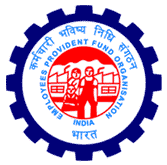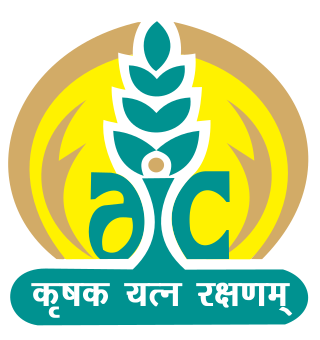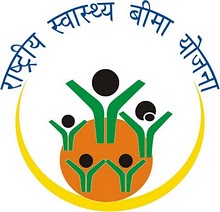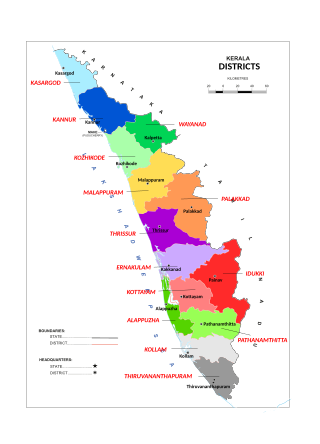
Odisha, formerly Orissa, is an Indian state located in Eastern India. It is the eighth-largest state by area, and the eleventh-largest by population, with over 41 million inhabitants. The state also has the third-largest population of Scheduled Tribes in India. It neighbours the states of Jharkhand and West Bengal to the north, Chhattisgarh to the west, and Andhra Pradesh to the south. Odisha has a coastline of 485 kilometres (301 mi) along the Bay of Bengal in Indian Ocean. The region is also known as Utkala and is mentioned by this name in India's national anthem, "Jana Gana Mana". The language of Odisha is Odia, which is one of the Classical Languages of India.

Bhubaneswar is the capital and largest city of the Indian state of Odisha, located in the Khordha district. The region, especially the old town, was historically often depicted as Chakra Kshetra and Ekamra Kshetra. Bhubaneswar is dubbed the "Temple City", a nickname earned because of the 700 temples which once stood there. In contemporary times, it has emerged as an education hub and an attractive business destination.

The Mid Day Meal Scheme is a school meal programme in India designed to better the nutritional standing of school-age children nationwide. The scheme has been renamed as PM-POSHAN Scheme. The programme supplies free lunches on working days for children in government primary and upper primary schools, government aided Anganwadis, Madarsa and Maqtabs. Serving 120 million children in over 1.27 million schools and Education Guarantee Scheme centres, the Midday Meal Scheme is the largest of its kind in the world.
The Other Backward Class (OBC) is a collective term used by the Government of India to classify castes that are educationally or socially backward. It is one of several official classifications of the population of India, along with general castes, Scheduled Castes and Scheduled Tribes (SCs and STs). The OBCs were found to comprise 52% of the country's population by the Mandal Commission report of 1980 and were determined to be 41% in 2006 when the National Sample Survey Organisation took place. There is substantial debate over the exact number of OBCs in India; it is generally estimated to be sizable, but many believe that it is higher than the figures quoted by either the Mandal Commission or the National Sample Survey.
The Mandal Commission or the Socially and Educationally Backward Classes Commission (SEBC), was established in India in 1979 by the Janata Party government under Prime Minister Morarji Desai with a mandate to "identify the socially or educationally backward classes" of India. It was headed by B. P. Mandal, an Indian member of parliament, to consider the question of reservations for people to address caste discrimination, and to use eleven social, economic, and educational indicators to determine backwardness. In 1980, based on its rationale that OBCs identified on the basis of caste, social, economic indicators made up 52% of India's population, the commission's report recommended that members of Other Backward Classes (OBC) be granted reservations to 27% of jobs under the central government and public sector undertakings, thus making the total number of reservations for SC, ST and OBC to 49.5%.

The Employees' Provident Fund Organisation (EPFO) is one of the two main social security organization under the Government of India's Ministry of Labour and Employment and is responsible for regulation and management of provident funds in India, the other being Employees' State Insurance. The EPFO administers the mandatory provident fund, a basic pension scheme and a disability/death insurance scheme. It also manages social security agreements with other countries. International workers are covered under EPFO plans in countries where bilateral agreements have been signed. As of May 2021, 19 such agreements are in place. The EPFO's top decision-making body is the Central Board of Trustees (CBT), a statutory body established by the Employees' Provident Fund and Miscellaneous Provisions (EPF&MP) Act, 1952. As of 2021, more than ₹15.6 lakh crore are under EPFO management.
Mahatma Gandhi National Rural Employment Guarantee Act 2005 or MGNREGA, earlier known as the National Rural Employment Guarantee Act or NREGA, is an Indian social welfare measure that aims to guarantee the 'right to work'. This act was passed on 23 August 2005 and was implemented in February 2006 under the UPA government of Prime Minister Manmohan Singh following tabling of the bill in parliament by the Minister for Rural Development Raghuvansh Prasad Singh.
Reservation is a system of affirmative action in India created during the British rule. It provides historically disadvantaged groups representation in education, employment, government schemes, scholarships and politics. Based on provisions in the Indian Constitution, it allows the Union Government and the States and Territories of India to set reserved quotas or seats, at particular percentage in Education Admissions, Employments, Political Bodies, Promotions, etc., for "socially and educationally backward citizens."
Social security in India includes a variety of statutory insurances and social grant schemes bundled into a formerly complex and fragmented system run by the Indian government at the federal and the state level. The Directive Principles of State Policy, enshrined in Part IV of the Indian Constitution reflects that India is a welfare state. Food security to all Indians are guaranteed under the National Food Security Act, 2013 where the government provides highly subsidised food grains or a food security allowance to economically vulnerable people. The system has since been universalised with the passing of The Code on Social Security, 2020. These cover most of the Indian population with social protection in various situations in their lives.

The government of the Indian state of Odisha and its 30 districts consists of an executive, led by the Governor of Odisha, a judiciary, and a legislative branch.

Agriculture Insurance Company of India Limited (AIC) is an Indian public sector undertaking headquartered in New Delhi. It is a government-owned agricultural insurer under ownership of the Ministry of Finance, Government of India. The company offers yield-based and weather-based crop insurance programs in almost 500 districts of India, and covers almost 20 million farmers, making it the biggest crop insurer in the world by number of farmers served.

POSCO India Private Limited is an Indian subsidiary of Korean conglomerate POSCO.

The economy of Odisha is one of the fastest growing economies in India. According to 2014-15 economic survey, Odisha's gross state domestic product (GSDP) was expected to grow at 8.78%. Odisha has an agriculture-based economy which is in transition towards an industry and service-based economy.

Rashtriya Swasthya Bima Yojana is a government-run health insurance programme for the Indian poor. The scheme aims to provide health insurance coverage to the unrecognised sector workers belonging to the BPL category and their family members shall be beneficiaries under this scheme. It provides for cashless insurance for hospitalisation in public as well as private hospitals. The scheme started enrolling on April 1, 2008 and has been implemented in 25 states of India. A total of 36 million families have been enrolled as of February 2014. Initially, RSBY was a project under the Ministry of Labour and Employment. Now it has been transferred to Ministry of Health and Family Welfare from April 1, 2015

Migrant labourers in Kerala, India's southernmost state, are a significant economic force in the state; there were around 2.5 million internal migrants in Kerala according to a 2013 study by the Gulati Institute of Finance and Taxation. Every year, the migrant worker population in Kerala increases by 2.35 lakh (235,000) people. The study, based on long-distance trains terminating in Kerala, does not cover migrants from the neighbouring states who use other modes of transport. Assuming that the estimation is rigorous and extrapolating it, taking into account the net annual addition, possible growth in migration rate, as well as accounting for the migration from the neighbouring states, Kerala is likely to have 5 to 5.5 million inter-state migrant workers in 2020. Despite their importance and despite many of them praising the state for its welfare schemes and environment, they are often ignored in comparison and suffer from comparatively poor living conditions.

Mahatma Jyotiba Phule Jan Arogya Yojana, previously Rajiv Gandhi Jeevandayee Arogya Yojana (RGJAY), is a Universal health care scheme run by the Government of Maharashtra for the poor people of the state of Maharashtra who holds one of the 4 cards issued by the government; Antyodaya card, Annapurna card, yellow ration card or orange ration card. The scheme was first launched in 8 districts of the Maharashtra state in July 2012 and then across all 35 districts of the state in November 2015. It provides free access to medical care in government empanelled 488 hospitals for 971 types of diseases, surgeries and therapies costing up to Rs.1,50,000 per year per family. As of 17 January 2016, around 11.81 lakh procedures amounting to Rs.1827 crore have been performed on patients from 7.13 lakh beneficiary families which includes over 7.27 lakh surgeries and therapies. The scheme is called successful amid some allegations of hospitals directly or indirectly causing patients to incur out-of-pockets expenses on some part of the treatment.

Ayushman Bharat Pradhan Mantri Jan Arogya Yojana(PM-JAY) is a national public health insurance scheme of the Government of India that aims to provide free access to health insurance coverage for low income earners in the country. Roughly, the bottom 50% of the country qualifies for this scheme. People using the program access their own primary care services from a family doctor and when anyone needs additional care, PM-JAY provides free secondary health care for those needing specialist treatment and tertiary health care for those requiring hospitalization.
Biju Swasthya Kalyan Yojana is a universal health coverage scheme launched by Chief Minister of Odisha, Naveen Patnaik. The program extends coverage to approximately 70 lakh families, with the state government allocating a budget of 250 crore rupees. Services:
- Free health services are available in all state government health care facilities, starting from the subcenter level up to the district headquarter hospital level, with Swasthya Mitras deployed at help desk.
- Annual health coverage of Rs 5 lakhs per family and 7 lakhs per female members of the family.
Pradhan Mantri Garib Kalyan Anna Yojana is a food security welfare scheme announced by the Government of India on March 26 2020, during the COVID-19 pandemic in India. The program is operated by the Department of Food and Public Distribution under the Ministry of Consumer Affairs, Food and Public Distribution. But the nodal ministry is Ministry of Finance.The scale of this welfare scheme makes it the largest food security program in the world benefiting 81.35 crore in India.











